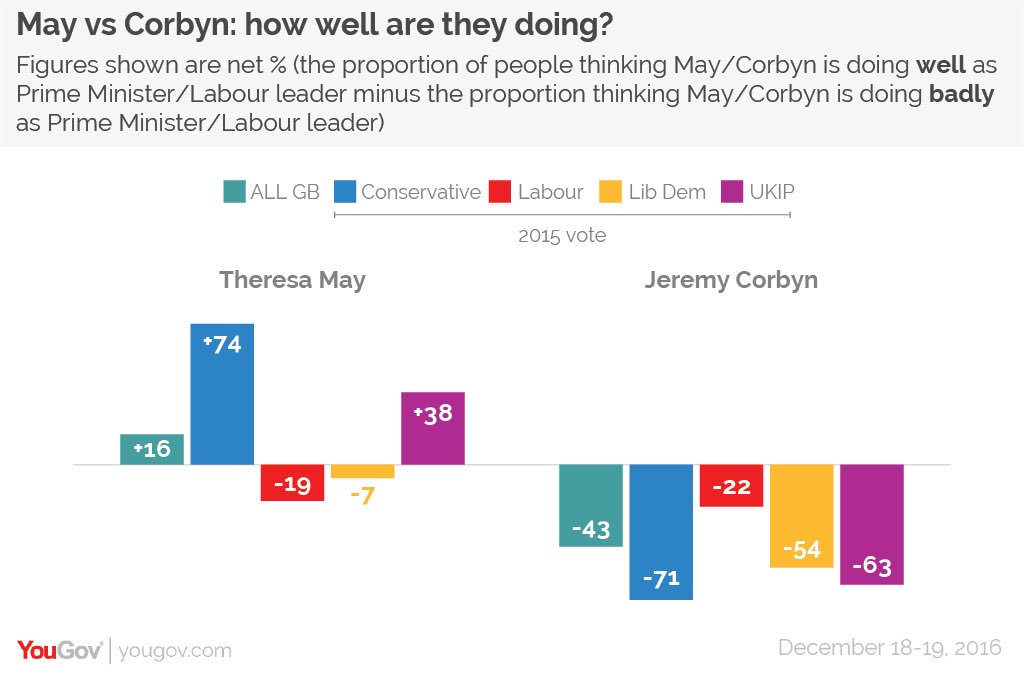Do you not think there's an issue with telling Corbyn's supporters that he's unelectable and that you know what needs to be done; and then taking as your better alternative two versions of the party that actually failed in two elections?
Also the meat of my post was the second half, because that's where most of my unanswered questions are. I want to genuinely know what this alternative looks like and whether it has learned anything from the failures of Third Way centrism (a political position that's as dead in the US as it is in the UK). Because right now my impression is that it hasn't; and if that's the case, I'm not sure I have any greater faith in it than I do in Corbyn.
No, that was what I was asking about putative alternatives, not Labour as it currently exists.
That doesn't make much sense tbh. No-one is suggesting that we bring back Brown or Miliband. Both were flawed, but for various reasons both got their shot. We knew Brown was going to lose going into the election, and the odds were on Miliband losing (although not by that much). It is possible for there to be a credible centre left politician who isn't Brown or Miliband. Plus Corbyn is going to do significantly worse than both of them!
In terms of policy proposals, I think that you are forgetting that the 1997 Labour Manifesto was the most detailed and specific party manifesto in our lifetimes, and it delivered (mostly) on those promises. Specific policy is what centre left does *far* better than Corbyn's wing of the party.
I don't think the "third way" is dead by the way. I think it fundamentally changed politics and how we talk and I think the conservatives stole a lot of its language. May has given numerous speeches which could have been Blair's back in the day.
Ultimately, for labour to win they need to be able to talk to the people who aren't in the bottom 10% or the top 10%, which was the mistake they made in 2015. You won't win an election by going on about austerity and how awful it is because it hasn't affected the majority of the voting public. You need a vision and a positive statement and the appearance of competence, none of which they have currently. Again, I would say go look at 1997 and Blair's promise card for an example of a well run centre left campaign and policy position and communications system.
1997 Labour Pledge card said:
1) Cut class sizes to 30 and under for 5, 6 and 7 year olds by using money from the assisted places scheme
2) Fast-track punishment for persistent young offenders by halving the arrest time from arrest to sentencing
3) Cut NHS waiting lists by treating an extra 100,000 patients as a first step by releasing £100m by cutting red tape
4) Get 250,000 under-25 year olds off benefit and into work by using the money from a windfall levy on the privatised utilities
5) No rise in income taxe rates, cut VAT on heating to 5%and inflation and interest rates as low as possible
Now, I'm not on-board with all of those (particularly number 2, but Blair was obsessed with crime), but it's a clear vision and policy statement that not only gives a specific promise but also tries to cost it in simple terms and sets the main focus of their agenda (Education, Criminal Justice, Health, Employment - an entirely domestic agenda).
(also don't write third way off as dead in the USA, given that Clinton ran the most left-wing campaign of any democratic nominee in living memory, possibly ever).


